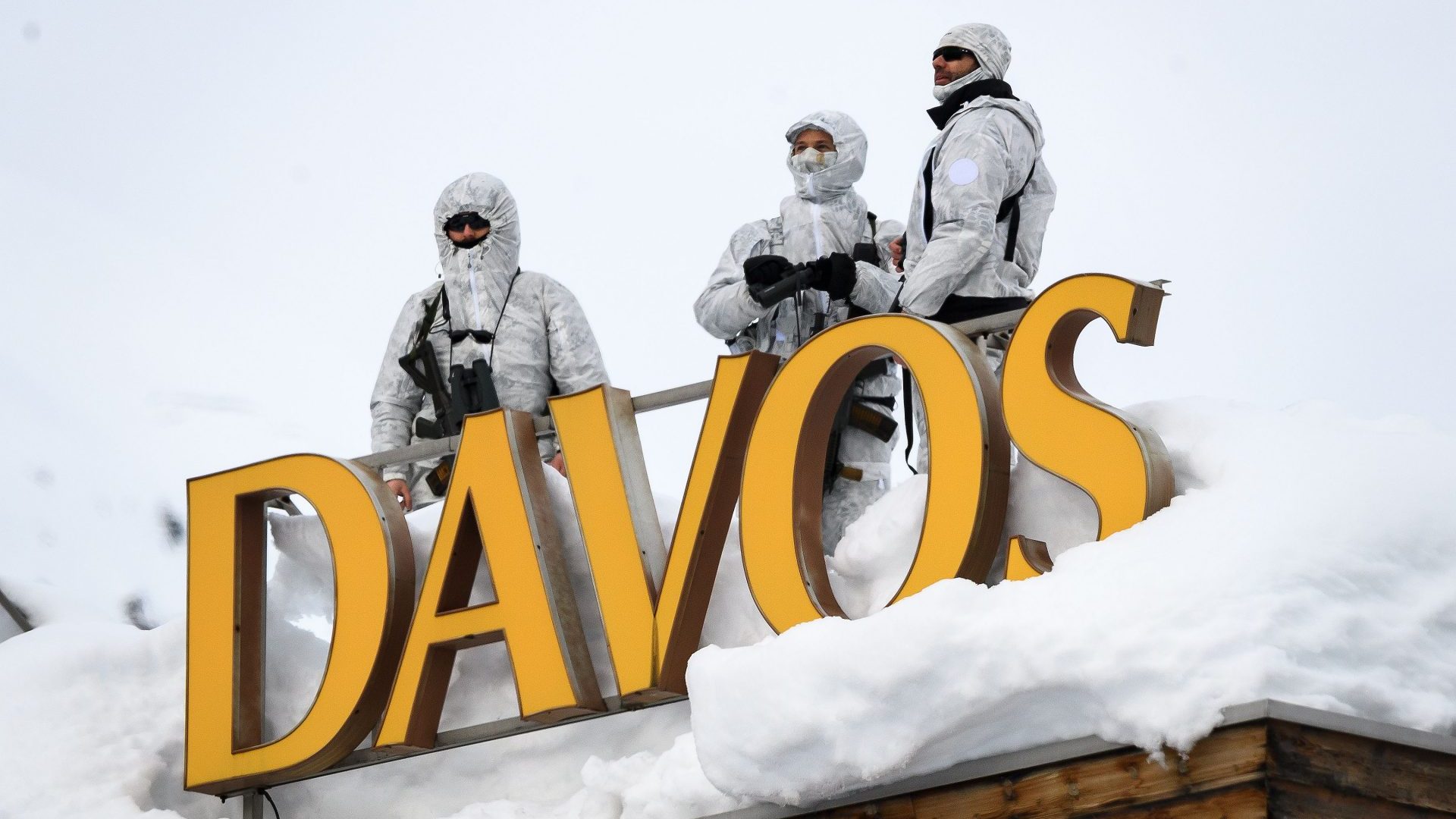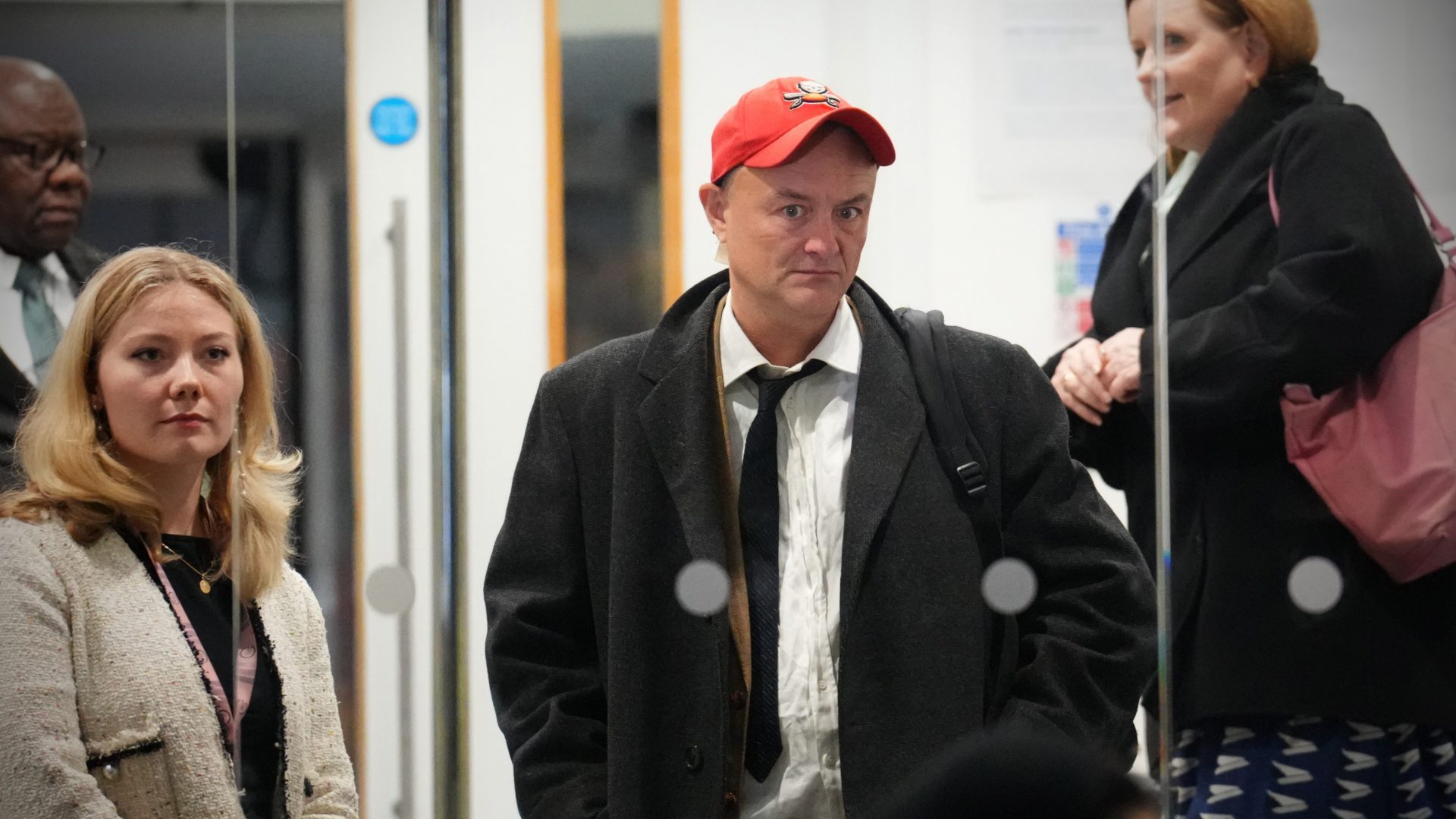Yes, folks, it’s that time of year again. Between January 15 and 19, around 3,000 corporate masters of the universe, chief executives, politicians, economists, intellectuals, client journalists and celebrities will converge on the Swiss town of Davos, high in the Alps, for the annual summit of the World Economic Forum. And what a horrendous festival of institutionalised humblebrag it will be.
This year’s theme is “Rebuilding Trust” – not to be confused, of course, with “Building Trust” in 2003. There’s a lot of talk about “sustainability” at Davos – sanctimonious discussion of net zero by delegates who have arrived by private jet – but the summit’s greatest feat of recycling involves world-class banalities.
In 2018, the big idea was “Creating a shared future in a fractured world”; which made a vacuous return last year as “Cooperation in a fragmented world”. In 2009, the summit theme was “Shaping the post-crisis world”, not to be confused with the 2012 exam topic: “The great transformation: shaping new models”. The stock in trade of the WEF is a plutocratic word salad of epic emptiness: “leadership”, “cooperation”, “sustaining”, “responsibility”, “tough choices”, “shared norms”, “stakeholding”, “aardvarks”.
All right: not “aardvarks”. These creatures are much too interesting for a Davos slogan, the point of which is to suggest urgency of action in the blandest possible language. If the Visigoths themselves arrive at the summit’s security cordon next week, a snap plenary will be held in the congress centre on “Visigoths as stakeholders: pillaging partnerships in the 2020s and beyond”.
Founded in 1971 by Klaus Schwab – now aged 85, and the self-appointed Yoda of the global economic elite – Davos has inspired all manner of preposterous conspiracy theories involving an alleged Satanic New World Order and a “Great Reset” that will supposedly turn us all into vaccinated slave-zombies at the beck and call of our AI-enhanced overlords. But such nonsense completely misses the point of the summit. It is not so much Spectre as Rentaghost.
Far from operating in secret, the gathering is an open – strike that, brazen – celebration of pay-to-play access, whereby members are charged up to $600,000 a year and individual company representatives fork out around $28,000 for the privilege of schmoozing with business titans, heads of government and, of course, Bono. There is no secrecy involved, other than the empty glamour of what, in 1944, CS Lewis called the “Inner Ring” (“We hope, no doubt, for tangible profits from every Inner Ring we penetrate… But all these would not satisfy us if we did not get in addition the delicious sense of secret intimacy”).
What the summit offers, in addition, is the most expensive affirmative therapy in the world. As Marc Benioff, the billionaire co-founder of the software giant Salesforce, put it at the 2021 online summit: “In the pandemic, it was CEOs, in many, many cases all over the world, who were the heroes.”
This was quite a claim to make after a year in which the wealth of billionaires worldwide had grown by $3.9tn, while more than 500 million people had fallen into poverty. But Benioff’s self-aggrandising declaration epitomised the karaoke morality that is the binding principle of the summit.
If its delegates have a common vision it is that they, rather than governments and regulators, are best placed to decide how money is controlled and distributed; that philanthropy is better than taxation; that organised labour is invariably an obstacle to progress; and that anyone who disagrees is a crazed Luddite.
The standard defence of Davos is that its convening power enables the most influential people on the planet to gather, discuss their next altruistic venture and (in keeping with its core mission) find new ways of “improving the state of the world”. But such pieties cannot survive a reading of Peter S Goodman’s excellent Davos Man: How the Billionaires Devoured the World (2022).
As Goodman puts it, Davos Man – a social category first popularised by Samuel P Huntington in 2004 – has “championed stakeholder capitalism as a means of pre-empting government regulation; as a substitute for the public making use of democracy to fairly distribute the gains of capitalism”. The consequences have been colossal: “Widening economic inequality, intensifying public anger, and threats to democratic governance have all resulted from the depredations of Davos Man”.
As the world burns with the rage of populism, nativism and ugly nationalism, fuelled by the inequality that Goodman identifies, the summiteers look on with indifference masquerading as intense concern. Officially, the delegates at Davos are troubled by the new authoritarianism and the rise of strong-man leadership. But whatever concern they feel is handily outweighed by their love of tax cuts, deregulation and cheap labour.
Donald Trump was a guest in 2018; Jair Bolsonaro the following year. When Xi Jinping delivered his keynote address in 2017, Schwab hailed China’s “responsive and responsible leadership”. How, I wonder, did that sound to the people of Hong Kong and Taiwan, or the brutally suppressed Uyghurs?
Very occasionally, a delegate slips through and speaks the truth. In 2019, the Dutch author Rutger Bregman scandalised the summit by pointing out its basic hypocrisy. “We can talk for a very long time about all these stupid philanthropy schemes,” he said, “we can invite Bono once more, but, come on, we’ve got to be talking about taxes, and that’s it. Taxes, taxes, taxes. All the rest is bullshit.”
Bregman was absolutely right. Five years on, as more than half the global population goes to the polls and the world braces itself for the possibility of Trump’s return to the White House, it is more important than ever to ask why the populist bandwagon keeps rolling and how it might be halted.
One thing is certain: there will be no answers in Davos next week. From the cosiest echo chamber on earth, its delegates will look out on the land of wolves they have done so much to create. The most helpful measure this discredited, pointless and wholly amoral summit could take to “improve the state of the world” is to abolish itself.




